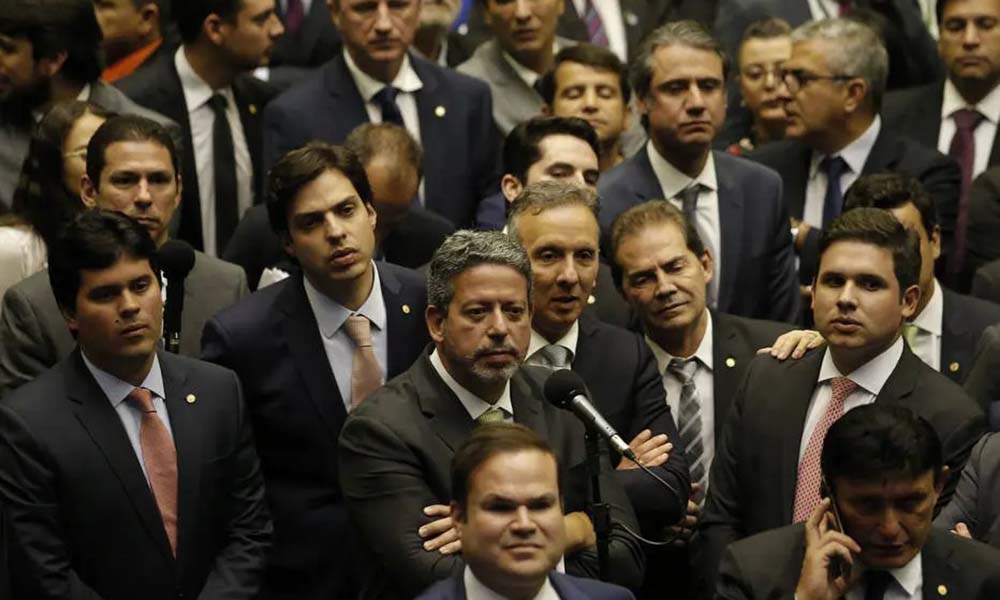RIO DE JANEIRO, BRAZIL – Known for dealing in patronage power plays, the Centrão – a congressional bloc of center and center-right parties – is now moving into government areas formerly restricted to the military.

In a personal effort to build his anti-impeachment front in Congress, President Jair Bolsonaro tries to house the bloc’s parties in strategic directorates of bodies, regional banks, foundations, and state governments that control billion-dollar budgets.
The opening of the federal machine to those endorsed by party leaderships has already started to halt the “militarization” of public entities and is spreading to part of the 106 first- to third- rank executive positions now filled by reserve and active officers.
One of the coveted gems of this year’s municipal elections is the Ministry of Regional Development. The portfolio headed by Rogério Marinho (PSDB-RN) has a budget of R$33.2 billion (US$6.6 billion) for small works.
The Planalto Palace has offered the Progressistas (PP), a party chaired by Senator Ciro Nogueira from Piauí – one of the many Centrão politicians investigaged by Lava Jato – posts in the National Department of Works Against Droughts, the DNOCS.
Subordinate to the Ministry, the DNOCS is already controlled by the group of Deputy Genecias Noronha (Solidariedade – CE), who appointed the Director-General, José Rosilônio Araújo. The Progressives, former PP, has also received offers of directorships in the National Food Supply Company (CONAB).
The government decided to negotiate positions in other portfolio sectors, such as the São Francisco and Parnaíba Valley Development Company (CODEVASF), which has a budget of R$1.6 billion this year, the National Water Agency (ANA), and regional development bodies such as SUDENE, SUDAM, and SUDECO. A part of these positions was offered to Valdemar Costa Neto’s PL (Liberal Party).
Convicted in the Mensalão (a vote-buying scandal that threatened to bring down the government of Luiz Inácio Lula da Silva in 2005) and investigated by Lava Jato, the ex-deputy should also control patronage positions in the Banco do Nordeste (Northeast Bank), and in health regulatory bodies, and state councils.
There are also disputes between the Centrão parties in the distribution of positions: DEM (Democrats) has put its foot down to remain in charge of CODEVASF, but the state-owned company’s board of directors will be shared among other parties in the bloc. In the case of the Northeast Bank, the Planalto has made it conditional that the party’s nominee be a career executive, that is, a civil servant endorsed by the party, in order to prevent further damage to the government’s image.
Of the nine military Ministers, one may lose his position to the Centrão. PSD, the party founded by the ex-Mayor of São Paulo Gilberto Kassab, intends to regain control of the Ministry of Science, Technology, and Communications. Kassab is also keeping an eye on the Correios (Brazilian Postal Service), chaired by General Floriano Peixoto.
Wedding
The Centrão and military groups are regarded as Bolsonaro’s mainstays, but the growth of one in the government may be to the detriment of the other. The Special Secretariat of Sport is a recent example of this tug-of-war. In one stoke of the pen, the Minister of Citizenship, Onyx Lorenzoni (DEM), dismissed three army colonels in March.
In practice, the current round of negotiations of the Planalto with the Centrão began in March, but Bolsonaro waited until mid-April to advise his team that he needed to open the government’s “gates” to the bloc for good. In one of the meetings, the then Minister of Justice Sérgio Moro disagreed.
Rogério Marinho, from the Regional Development Ministry, has also complained. Bolsonaro has a ready response for his constituency rejecting the Centrão. “There are tens of thousands of positions. If a Minister wants to assign a position to someone from his party without my knowledge, do you think that could happen? It can,” he said last Tuesday, April 28th.
The number of senior officials appointed to third level positions in the political alliance is as high as 80. Ten parties have been endorsed: PSD (four), MDB (three) PL (three), PSL (three), Progressives (two), PSC (two), SD (two), DEM (one), PTB (one) and Citizenship (one). At the other end, the barracks were still contemplated, but on a smaller scale. This year, the proportion of nominated chiefs was ten, with party links for five military officers. General Antonio Filho is another, as he may lose the National Department of Transport Infrastructure to the Centrão.
Bolsonaro has convinced himself that he is at a crossroads, according to allies. A former Captain, he finds himself facing the prospect of repeating either Dilma Rousseff, who was impeached, or Michel Temer, who conducted a string of political negotiations to complete his mandate. According to one ally, it was a nonsensical ability to generate crises that opened the government more rapidly to the parties.
By sidling up to convicted corrupt politicians Roberto Jefferson’s PTB (Brazilian Labour Party) and Paulo Maluf’s Progressives, Bolsonaro now has representatives of the Centrão in the Planalto Palace.
Source: O Estado de S. Paulo

